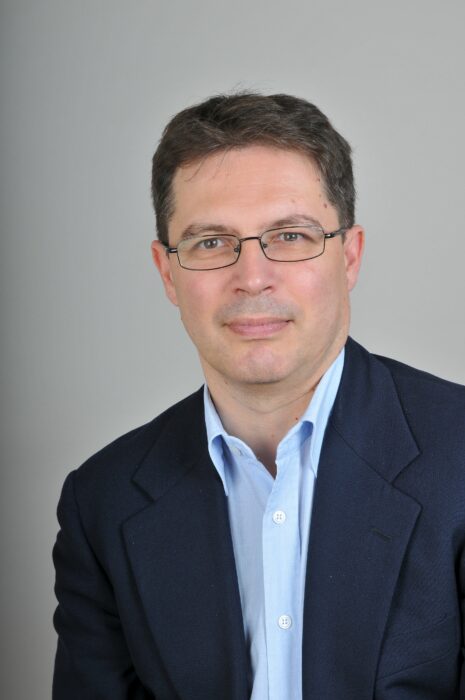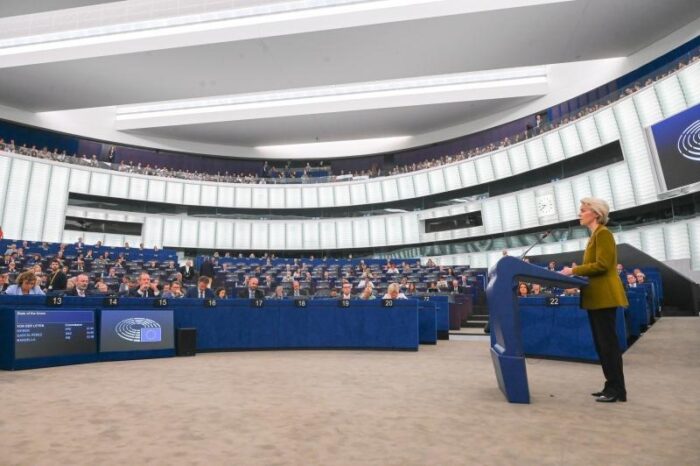The Progressive Post
Slovenia: a resounding no to ‘illiberal democracy’ and traditional party politics

In the shadow of the war in Ukraine and the French presidential election, the Slovene parliamentary election took place on Sunday 24 April. The outcome of the election in Slovenia was important primarily for reinvigorating democracy in Slovenia. But it was also important for the future of democracy in Europe.
The resounding electoral ‘no’ to the erosion of democracy in the country and to the systematic dismantling of independent institutions, that saw an accelerated pace in the last two years, is due mainly to the active and well-organised civil society, investigative journalism and social movements that mobilised the electorate to the highest turn-out in the last two decades. While in the 2018 election the turnout was 52 per cent, this time it was nearly 70 per cent.
Another characteristic of the election in Slovenia was that the votes of the large segment of the electorate did not go to existing parties that have been in opposition, but to the recently established liberal party ‘the Freedom Movement’, founded in January by Robert Golob, a former manager in an electricity company. His party won 34.5 per cent of the votes and 41 of the 90 seats in Parliament. This is the largest share of parliamentary seats won by any political party in the history of democratic elections in Slovenia.
Even this short overview of the electoral dynamic in Slovenia, shows the level of dissatisfaction of the general electorate with the state of democracy, party politics, civic engagement in the crucial areas of green transition, post-pandemic recovery, inclusive and sustainable development, and the future of the social systems, especially concerning health and pensions.
The challenges for the incoming prime minister and his government will be immense. They will include how to steer the government between growing prices of energy and food, while searching for alternative sources of energy and transitioning toward renewables; how to improve the position of public finance, which was excessively spent for the purposes of winning the election by the outgoing government; how to make the best use of the EU recovery funding; how to redirect overall social and economic development of the country towards inclusive knowledge economy; how to gradually overcome structural overdependency on foreign finance; and how to maintain an open and productive dialogue with the trade unions and the civil society at large.
Because the new party and its leader possess almost no party infrastructure and no firm social base, the consolidation of the party base, while steering the coalition government, will be an additional challenge. Since weak party structures tend to be prone to capture by various interest groups, the ability of the new party and its leader to resist the vested interests and various rent-seekers will be crucial.
Although party politics was pushed aside in this election, for every parliamentary democracy it is vital to maintain a high-quality party structure to implement the political program. The experience of the French president Macron and his ‘La République en Marche’ from 2017-2022 offers some insight into the complexity of the project.
The previous project in Slovenia, the social-liberal ‘Modern Centre Party’ (SMC), led by Miro Cerar in the period 2014-2018 failed and opened the door to the rise of populism in Slovenia.
The outgoing coalition led by the conservative ‘Slovenian Democratic Party’ (SDS) and Prime Minister Janez Janša in the last two years, strongly tied its fate to the Hungarian Fidesz and its Prime Minister Viktor Orbán. It appears that many of the measures taken under the pretext of fighting Covid were borrowed from the Hungarian textbook of illiberal democracy. To mask the systemic dismantling of independent institutions and the media, the new coalition launched continuous culture wars and polarised the society along all existing and artificially invented dividing lines, sugar-coated by excessive borrowing and spending during the pre-election period. It has not stopped the public protests, however. The visit by Prime Minister Janša to Kyiv on 15 March, as one of the first leaders, marked the departure from the alliance with Orbán.
During the Slovene EU Council presidency, too many conflicts took place, such as the conflict with the national press agency STA and a conflict with the European Prosecutor’s office to appoint the Slovene prosecutors. Finally, the support of the SDS by the EPP and its leader Manfred Webber only a few days before the election was understood by a large segment of the Slovene electorate as a blank cheque for further undermining independent institutions in Slovenia. The resounding rejection of the ‘Orbánisation’ of Slovenia may therefore also have negative consequences for the position of the EPP in the European context.
The fate of the opposition political parties, from the Social Democracy (SD) to the Left, LMŠ and SAB, was more a collateral consequence of the polarised political context than the result of their work in the opposition and their political campaigns.
Even in the absence of a deeper analysis, it is possible to claim that their efforts to contain the ‘Orbánisation’ of the country in the last two years and confrontations before and during the electoral campaign helped pave the way for the success of Robert Golob’s ‘Freedom Movement’ at least in part.
In particular, the Social Democrats paid a high price by receiving a mere 6.6 per cent of the votes (7 seats), the second-lowest electoral outcome in its history. Irrespective of this outcome, however, it needs to be emphasised that the socially ambitious political program beyond the previous ‘tax and transfer’ attempts, the rejuvenation of the party and the effort to expand its social base were coherent and positive. Thus, with their established infrastructure, coherent program and experienced team, the Social Democrats may play an important role in the next coalition government.
In the longer run, the hope remains that Social Democracy at the national level – as well as at the EU level – will find coherent structural, institutional and policy proposals to reconnect with the voters and to enable more inclusive and sustainable democratic development at all levels of the international polity.
The electoral slogan of the SDS was “no to experiments”. In fact, exactly the opposite is needed: broad democratic participation in decision-making processes is necessary to launch new development strategies to ensure inclusive and sustainable development.
The election in Slovenia offers a small glimmer of hope and opportunity amidst grim European and international realities. In this sense, it offers a positive signal for strengthening democracy in Slovenia, in other European countries, and elsewhere.
Photo credits: socialnidemokrati/FEPS
Related articles:
Did the illiberal and far-right indictee Janša fall forever?, by Blaž Zgaga




